Malaysia GE2022: Voters want to get past racial politics but protecting Malay-Muslim rights still vital for some
KUALA LUMPUR — Ms Lydyawaty Mohd Azhar would have considered many factors by the time she casts her vote on Malaysia’s polling day this Saturday (Nov 19), but the candidate’s race or religion will not be one of them.
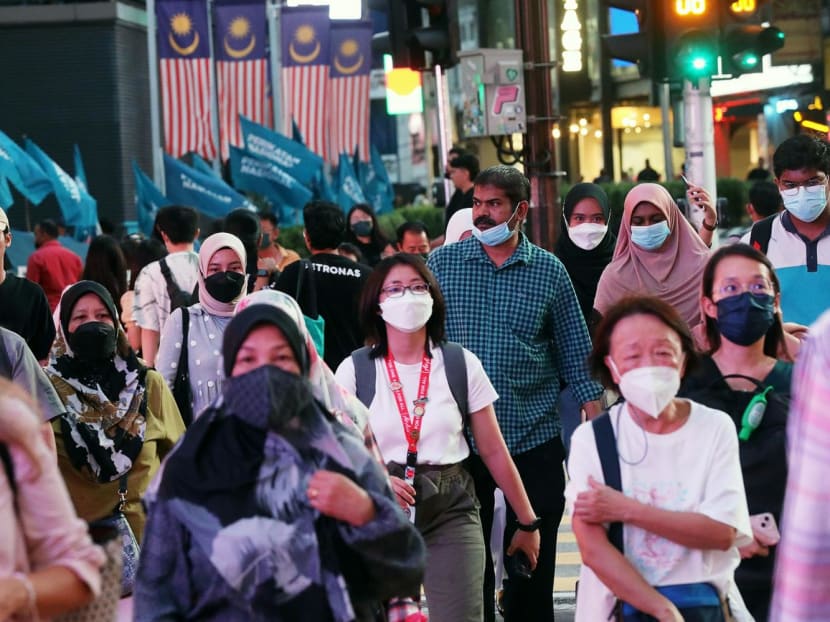
People walking along the street in Bukit Bintang, Kuala Lumpur, Malaysia on Nov 15, 2022.
- Voters in Malaysia who spoke to TODAY said that they would like to see their country move past politics based on race and religion
- However, analysts observed that politicians there are not toning down on such rhetoric
- One attributed it to the Malay political parties trying to outdo each other in championing for Malays or Muslims, who form the bulk of voters
- A handful of Malay voters told TODAY they were concerned about losing special privileges if a non-Muslim take the top office in government
- In the East Malaysian states, racial politics play out “more subtly” since there is no single dominant race or religion there, analysts said
KUALA LUMPUR — Ms Lydyawaty Mohd Azhar would have considered many factors by the time she casts her vote on Malaysia’s polling day this Saturday (Nov 19), but the candidate’s race or religion will not be one of them.
“I won’t look at the skin colour… All these racial politics only make things more difficult for us rakyat (ordinary people),” the 40-year-old cafe employee said. Her workplace is located in Batu, in the northern outskirts of Malaysia’s capital city.
She explained that as a multiracial society, political campaigning based on racial or religious issues would only widen the divide rather than serve the interest of the different communities.
Ms Lydyawaty’s sentiments were similarly shared by more than 30 voters who spoke to journalists from TODAY in Johor, Perak, Sabah and Selangor during the campaigning period of the country’s general election.
Whatever generation or racial group they belonged, whether they were living in rural or urban precincts, they were clear about not wanting to be caught up in political campaigns that steer into these muddy waters.
And although most would like to see Malaysia move beyond the politics of race and religion, a minority of them still feel strongly about having a Malay-Muslim lead Malaysia to ensure that the rights of this particular group remain protected in a diverse society.
Some experts noted that politicians are still harping on racial issues as much as they did in previous elections, despite the more multiracial Pakatan Harapan (PH) being successfully voted into power in 2018.
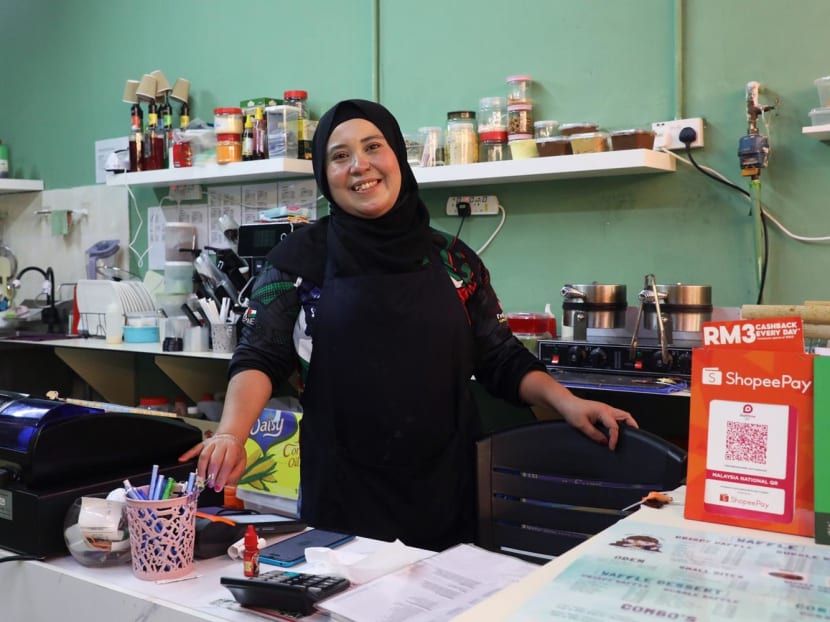
In the East Malaysian states of Sabah and Sarawak, however, racial politics play out “more subtly”, analysts said, because there is no single dominant race or religion there, allowing them to maintain a “veneer of racial integration”.
OTHER PRESSING ISSUES BESIDES RACE
Citizens who were interviewed felt that having achieved independence for about 60 years, Malaysia should be mature enough as a society to move beyond racial and religious politics.
Ms Liyana Syazwani, an undergraduate who will be voting for the Putrajaya parliamentary seat in Kuala Lumpur, said that she could see why some people felt a need to have political parties based on racial lines.
“It’s important as they would help voice out the different concerns of their respective communities,” the 22-year-old said.
“But, by right, after so many years of being a multiracial (society), we should already know each other’s needs and sensitivities,” the first-time voter added.
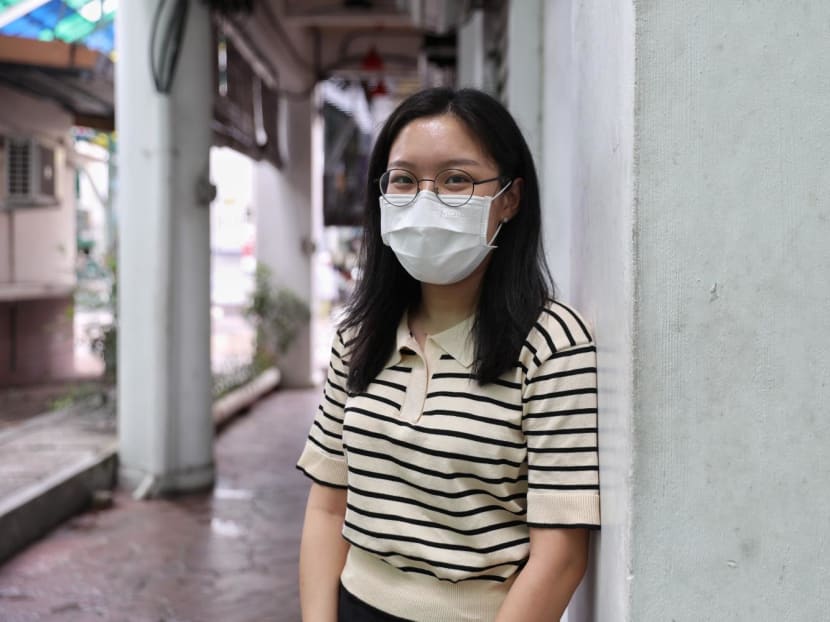
University student Chan May Xi, 21, who is voting in Tangga Batu, Melaka, said: “The three races (Malays, Chinese and Indians) are rather harmonious, but politicians, in wanting to get the vote, like to magnify the race issue, and I hope that there can be less of that.”
Political scientist Meredith Weiss noted how the Barisan Nasional (BN) coalition, for example, was formed by the Malay-centric United Malays National Organisation (Umno) together with other parties focusing on other races — based on the assumption that people vote based on their racial identity.
However, this model “doesn’t fit very well at this point” for a few reasons, one of which is the effect of urbanisation.
The visiting senior fellow from the S Rajaratnam School of International Studies said: “(For example), if you're a Malay young urbanite, you'll probably have some similar priorities to those of a Chinese young urbanite just because of life circumstances.”
There are also other more pressing issues coming to the fore such as cost of living, which might have taken over the emphasis on race.
Dr Weiss added: “Socio-economic class may determine much more about what people need from the state or what they prioritise, rather than a racial identity.”
One Chinese voter, who wanted to be known only as Mr Woon, said that racial differences are less keenly felt among people of lower socio-economic status.
“Those who are lower on the social rung won’t feel that the races are treated differently, and are quite harmonious, because what they think about most is making a living and getting by,” the 64-year-old fruit stall owner said.
“But when minorities start to climb the social ladder, that is when they will start to feel that race matters.”
Mr Woon, a voter from Batu Pahat, Johor, was referring to certain race-based affirmative policies enacted by the Malaysian government, which grants certain races affirmative action in areas such as in the public sector or in acquiring land.
“We want to do away with all these policies, but right now it is just a hope,” he added.
MUSLIM LEADER ‘STILL NECESSARY’
Some Malay voters who spoke to TODAY said that they still prefer to have a Malay or Muslim leader, even though they wish that all Malaysians are treated equally regardless of race.
Mr Mohamed Ali Abu Bakar, 48, said “it is only right” for all communal groups to be treated equally and be given the same opportunities when it comes to education or jobs, for instance.
However, he said that many in his community feel that only a Muslim should be elected as the prime minister.
“Many are afraid that if a non-Muslim holds the position, people will try to slowly revoke the privileges of Muslims (in Malaysia).”
“When Malay voters say that (the government) treats races equally… what does ‘equally’ mean? For them, it means to continue with the affirmative action programmes that help Malaysians become more equal in their eyes.Dr Francis Hutchinson, coordinator of the Malaysia Studies Programme at Iseas-Yusof Ishak Institute in Singapore,”
Agreeing, a 32-year-old policeman who gave his name as just Eddy said: “We must elect a Malay or Muslim to ensure our religion is protected.
“If there is no Muslim candidate, I’d rather spoil my vote,” the voter in the urban constituency of Batu, Kuala Lumpur, said.
Mr Aziz Abu, 64, a fruit seller, takes a more moderate view, telling TODAY that he only agreed “50 per cent” about voting along racial lines, because the economic situation has worsened and he wants to see a leader that can benefit him regardless of race.
“I want equal opportunities for all races… I don’t really care (if the candidate) is Malay or not, but I want him or her to treat everyone equally,” the Batu Pahat voter in Johor said.
However, when asked whether he would prefer a Government that centres their policies around his religion, he agreed.
“If the candidate is a Muslim candidate, and can lead us to the correct path, I’ll follow…. But if it’s a Muslim candidate but not very religious, why would I want to follow him?”
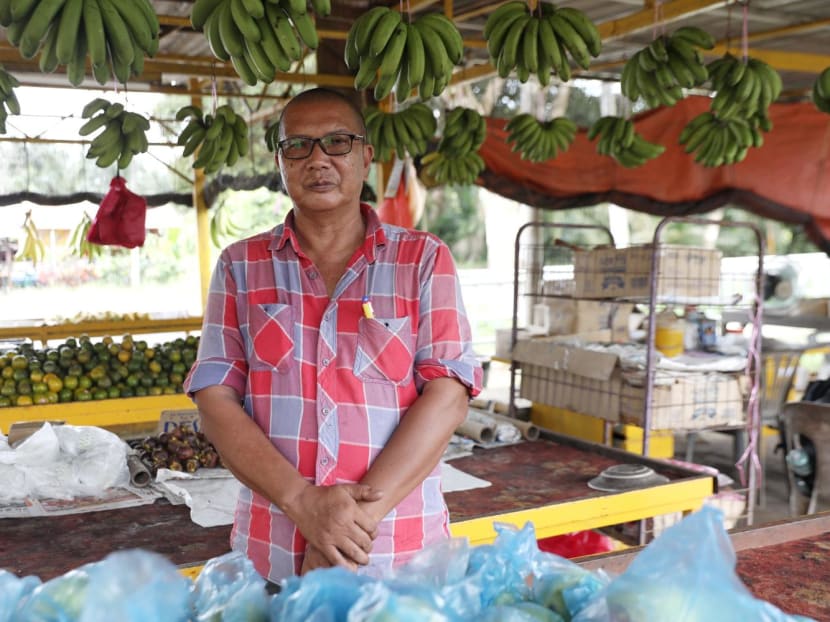
Mr Aziz's views are quite common, with a survey among Muslim youth conducted by independent pollster Merdeka Centre end of last year showing that 65 per cent of respondents believed that Muslims should only vote for Muslim leaders.
‘GO TO HELL’ FOR VOTING CERTAIN PARTIES
Pressing on with their campaigns, certain politicians are seen to be exploiting racial and religious sentiments.
Former prime minister Muhyiddin Yassin, who leads the Perikatan Nasional (PN) coalition, apologised after a youth leader of its component party, Parti Se-Islam Malaysia (PAS), said that voters of PH or BN “will go to hell”.
On his part, caretaker prime minister Ismail Sabri recently told voters in Ayer Hitam, Johor, to “not fall for (PH)’s trick” of fielding a Malay candidate there, because the candidate is a member of the Democratic Action Party (DAP), widely seen as a predominantly Chinese party.
The media there reported how the candidate, Sheikh Umar Bagharib Ali, has become victim to racial slurs for representing DAP.
“Some voters might want to move on from race and religion, but politicians who use these tactics know there is an audience for this and appeal to the conservative base in Malaysia, who might fall below the radar of most media outlets and surveys.Ms Aira Nur Ariana Azhari from the Institute for Democracy and Economic Affairs”
Some analysts observed that the racial or religious rhetoric peddled to voters this time round are “not more or less” as compared to previous elections.
Dr Oh Ei Sun, a senior fellow at the Singapore Institute of International Affairs, said that “racial and religious affiliations remain deeply rooted in Malaysian voters’ psyche”, even though the more multiracial PH was successfully voted into power in 2018.
Agreeing, Mr Adib Zalkapli, director at advisory firm Bower Group Asia, said that discussions on racial issues “cannot be totally eradicated” in Malaysian election campaigns because they have been ingrained for too long.
Ms Aira Nur Ariana Azhari, the democracy and governance unit manager at think-tank Institute for Democracy and Economic Affairs, suggested why politicians play the race and religion card.
"Some voters might want to move on from race and religion, but politicians who use these tactics know there is an audience for this and appeal to the conservative base in Malaysia, who might fall below the radar of most media outlets and surveys."
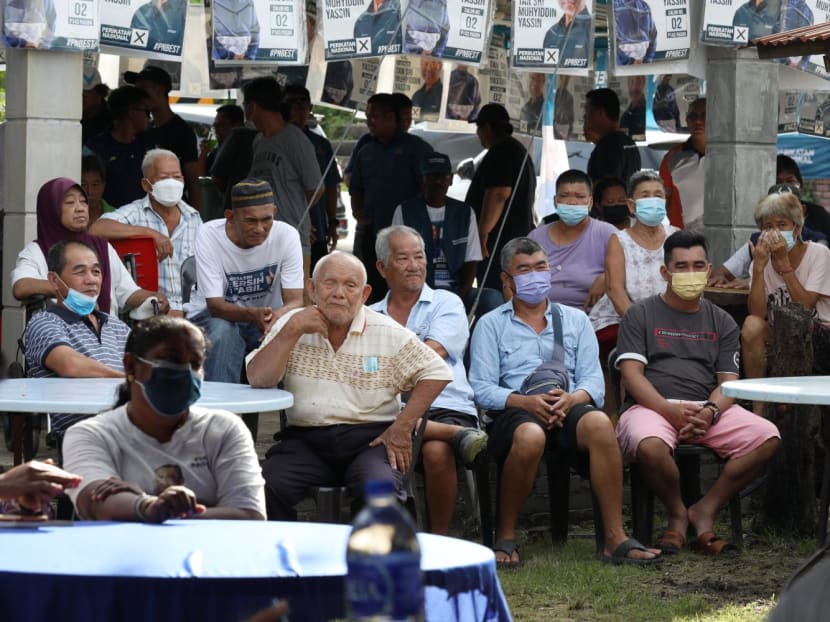
On the other hand, Dr Weiss from the S Rajaratnam School of International Studies found that racial and religious political messaging, previously seen in smaller or mono-racial settings, “is more stark and open” this time than at recent elections.
“I’ve been thinking it’s because of the nature of competition this time: The difference among Umno, PAS, Bersatu (Parti Pribumi Bersatu) and PKR (Parti Keadilan Rakyat) is more about how much a champion for Malays or Islam each is, rather than how well they represent the country as a whole,” she said.
The experts added that there is also a reason why Malay voters tend to perceive other races as being treated equally whereas minority races may not necessarily feel this is the case.
Dr Francis Hutchinson, senior fellow and coordinator of the Malaysia Studies Programme at Iseas-Yusof Ishak Institute in Singapore, said: “When Malay voters say that (the government) treats races equally… what does ‘equally’ mean?
“For them, it means to continue with the affirmative action programmes that help Malaysians become more equal in their eyes.”
THE SCENE IN SABAH AND SARAWAK
Of the eight voters in Sabah approached by TODAY, all but one said that race was not important in their voting decision, with most adding that a candidate’s responsiveness to voters’ needs is more important than the candidate’s ethnicity.
This was even though TODAY observed that candidates fielded in particular constituencies tended to reflect the majority demographic of the area.
For example, four of the five candidates contesting in Sabah’s capital city of Kota Kinabalu are Chinese, and the city has a high concentration of Chinese voters.
Unlike in peninsular Malaysia — where the three main races are Malays, Chinese and Indians — Sabah and Sarawak have a different ethnic mix.
In Sabah, the Kadazan-Dusun make up the largest ethnic group at 30 per cent of the population, followed by the Bajaus and Muruts.
In Sarawak, the biggest ethnic group are the Ibans, followed by other groups such as Bidayuh and Melanau.
Malays and Chinese populate the city areas in both states.
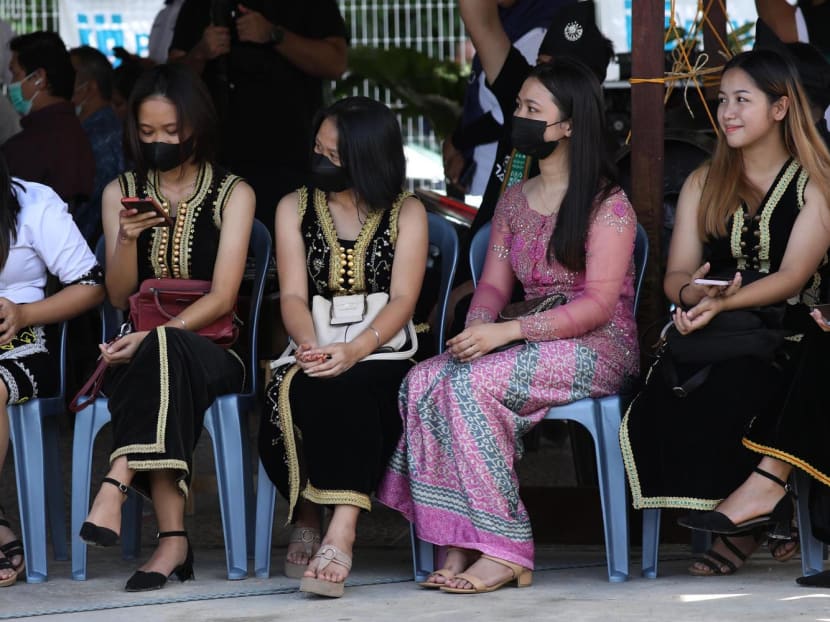
Of those who spoke to TODAY in Sabah, only Mr Syed Mohd Hamizan Roslan, a 33-year-old engineer, said that race would be one of the factors for a candidate to win in his constituency of Kota Belud, Sabah.
“You don’t put a Chinese candidate in a bumiputera area because they will never win.”
Mr Hamizan is also a member of the Gabungan Rakyat Sabah (GRS) party, which has an electoral pact with BN’s arm in Sabah.
However, he was quick to add that people in his constituency “embrace harmony” and a non-bumiputera candidate could still stand a high chance of winning if he or she communicates with and treats people well.
Analysts said that at a societal level, the people in the East Malaysian states of Sabah and Sarawak tend to be more harmonious than their West Malaysian counterparts due to their different racial and religious composition.
However, ethnicity remains a factor when voters choose their candidates.
Dr Oh from the Singapore Institute of International Affairs said that in Sabah and Sarawak, the main racial and religious rivalry is between Muslim and non-Muslim bumiputeras, and the latter “tend to be more accommodating”.
This is likely why there is also less antagonism involving racial politics — unlike in peninsular Malaysia where Malays would like to maintain their supremacist positions and non-Malays do not want Malay and Muslim dominance, he added.
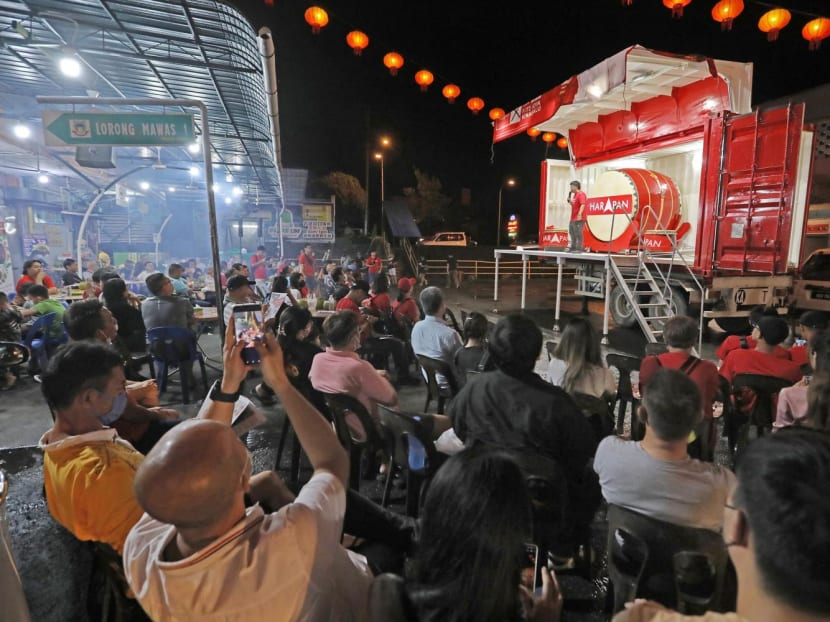
Mr Tony Paridi Bagang, a senior lecturer from Sabah Universiti Teknologi Mara, said that ethnic politics matters in Sabah because its political setting is also communal-based, much like in peninsular Malaysia.
For example, parties such as Parti Bersatu Sabah and Upko claim to be multiracial, but their composition and grassroots supporters are mainly from their respective ethnic groups such as Kadazan-Dusun.
However, unlike in peninsular Malaysia, politicians and voters do not harp on racial sentiments that divide the communities, he added.
At a societal level, the level of tolerance for different races is also higher than in peninsular Malaysia, due to factors such as inter-marriage, Mr Tony said.
That said, Mr Tony, who specialises in identity politics, said that voters expect candidates to reflect the demographic of the constituency due to a primordial attachment to their own ethnic groups.
At the same time, voters in Sabah also consider a candidate’s personality, socio-economic background and affiliated political party before voting, he added.
Visit our Malaysia Elections 2022 page for the latest coverage, updates from TODAY journalists on the ground and more.












